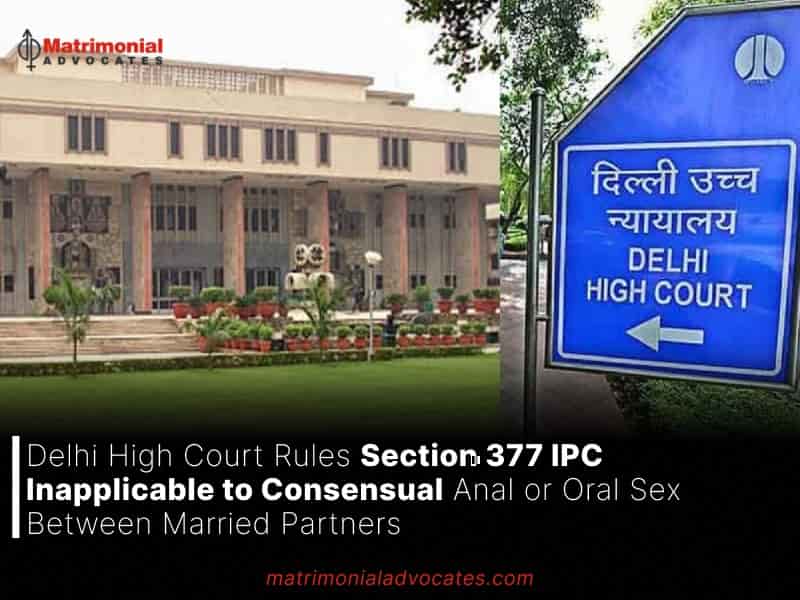
The Court said the law presumes a wife’s implied consent for sexual intercourse and sexual acts including anal and oral sex in a marriage.
The Delhi High Court has recently held that Section 377 of the Indian Penal Code (IPC), which criminalizes unnatural sexual acts, cannot be invoked to prosecute a husband for engaging in anal or oral sex with his wife.
Justice Swarana Kanta Sharma noted that, under the legal framework, a husband is protected from prosecution under Section 377 due to the presumption of implied consent by the wife for sexual intercourse and associated acts—including anal and oral sex—within the institution of marriage.
“Thus, in the considered opinion of this Court, there is no basis to assume that a husband would not be protected from prosecution under Section 377 of IPC, in view of Exception 2 to Section 375 of IPC since the law (amended Section 375 of IPC) now presumes implied consent for sexual intercourse as well as sexual acts (including anal or oral intercourse within a marital relationship),” the Court said.
The single-judge bench clarified that Section 377 of the IPC does not apply to criminalise non-penile-vaginal sexual acts between a husband and wife when conducted within the framework of a marital relationship.
“Such an interpretation would be in line with the reasoning and observations of the Hon‘ble Supreme Court in Navtej Singh Johar (judgment),” the Court said.
The bench arrived at this conclusion while setting aside a trial court order that had framed charges under Section 377 IPC against a man.
The case originated from a complaint filed by his wife, who claimed that the husband failed to consummate the marriage despite several attempts but engaged in oral sex with her during their honeymoon.
She further alleged that her father-in-law committed rape and her brother-in-law subjected her to physical assault.
While the trial court discharged the other accused, it held that a prima facie case under Section 377 existed against the husband.
However, the High Court disagreed with this finding and quashed the charges. It observed that the woman had not specifically alleged that the husband engaged in oral sex without her consent.
Consequently, charges could not be framed against him, as consensual oral or anal intercourse between two adults in a private setting does not amount to a criminal offence.
“It is pertinent to note that the complainant and the petitioner herein are legally wedded to each other, and the allegations arise from a matrimonial dispute. Importantly, the complainant has not specifically alleged that the act of oral sex was performed against her will or without her consent,” the Court said.
The Court further observed that the woman’s allegations were vague and that the evidence did not substantiate the essential elements of the alleged offence.
“In light of the above, and considering the material placed on record, this Court is of the considered opinion that no prima facie case is made out against the petitioner for the offence under Section 377 of IPC. The impugned order directing the framing of charge is, therefore, unsustainable in law and is liable to be set aside,” the Bench ordered.





